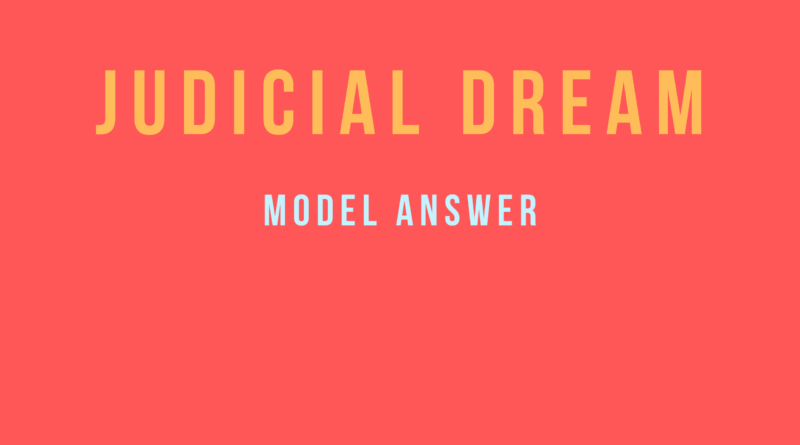EVIDENCE OF ACCOMPLICE
Discuss the admissibility of an evidence given by the accomplice under the provisions of Indian Evidence Act, 1872.
Section 133 of the Indian Evidence Act, 1872, deals with the provisions of an admissibility of evidence given by the accomplice. According to section 133 of Indian Evidence Act, 1872, an accomplice is a competent witness against the accused and his testimony can be admitted by the court even without corroborating it with the other independent witnesses.
The main question which arises here is, “what does the term ‘accomplice’ mean?”
The term ‘accomplice’ has not been defined anywhere under Indian Evidence Act, 1872. But according to Black Law’s dictionary an ‘accomplice’ is a person who participates in the guilty act alongwith other wrongdoers.
In the leading case of Chandan vs. Emperor (All 1930), the Hon’ble court defined the term ‘accomplice’ as one who is associated with an offender or offenders in the commission of a crime or one who knowingly or voluntarily helps and cooperates with others in the commission of the crime.
According to the Hon’ble court the term ‘accomplice’ may include all particeps criminis i.e., a partner in crime and a person who is a guilty associate in a crime or who has a relation to the criminal act that can be jointly indicated with the principal criminal is an accomplice.
Moreover, in the leading case of Shanker vs. State of Tamil Nadu (SC 1994), the Hon’ble court held that when an accomplice becomes an approver, he eventually becomes a prosecution witness. An approver’s evidence has to satisfy two tests. Firstly, his evidence must be reliable, and secondly, his testimony should be sufficiently corroborated.
According to section 114 ill. (b) of the Indian Evidence Act, 1872, an accomplice is unworthy of credit until his statement is corroborated with the other material witnesses.Section 133 of the Indian Evidence Act, 1872, is a rule of Evidence whereas section 114 ill. (b) of the Indian Evidence Act, 1872, is a rule of prudence.
It cannot be denied by anyone that every crime is committed by an accused secretly and to secure the conviction of an accused, prosecution has to prove his case beyond reasonable doubt and sometimes due to lack of direct evidences as well as circumstantial evidences, prosecution fails to prove his case beyond reasonable doubt and that is why, court has to give benefit of doubt to an accused and he will have to be released by the court of law.
But according to the provisions of Indian Evidence Act, 1872, if two persons commit a crime jointly then both of them are considered as material witnesses against one another and if there is no witness present against both the accused persons, then rather to acquit both of them, the court can ask any of them to be an approver and if any of them becomes ready to be an approver, then the court grants him pardon and during the trial administers him an oath and then he becomes a witness against the other accused.
According to the provisions of Indian Evidence Act, 1872, while relying upon the evidence of an accomplice, the court analyses the behaviour of an accomplice, the story narrated by the accomplice etc. and if court feels that it is safe to rely upon the evidence of an accomplice, then only without corroborating it, the court can pass a judgment of conviction.
But if the court thinks that the accomplice is making a false story, then in such a case, the court will not act upon the evidence of an accomplice directly and it will take the evidences of other independent witnesses and after corroborating the evidence of an accomplice with other evidences, pronounce the judgment.
Moreover, according to the provisions of Indian Criminal System, if the court finds that after getting pardon an accomplice is not saying truth or concocting a frivolous story, then in such a case, the court can after taking the permission from the High Court of the concerned state, prosecute the accomplice for giving false evidence under section 308 of the Code of Criminal Procedure, 1973.



